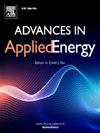A review of participatory modelling techniques for energy transition scenarios
IF 13.8
Q1 ENERGY & FUELS
引用次数: 0
Abstract
Energy transitions are pivotal for sustainability, yet their complexity and uncertainty pose significant challenges for effective planning and implementation. Participatory modelling has emerged as a promising approach to support these transitions, as it involves incorporating stakeholders' perspectives into models and policy designs, which helps integrate their mental models and preferences into simulations. This paper reviews the current state of participatory modelling in transition research for energy scenarios. Drawing on a comprehensive literature review and semi-structured interviews, we extract findings by evaluating participatory modelling techniques against criteria such as normative dimensions, non-linearity, actors and agency, uncertainty and emergence. Findings reveal that techniques like Cross-Impact Balance analysis and Fuzzy Cognitive Mapping excel in incorporating normative aspects and capturing diverse actor perspectives, yet they face challenges in addressing non-linearity and uncertainty. Bayesian Networks and Agent-Based Models are strong in managing uncertainty and modelling emergent behaviours but show limitations in normative aspects. Our findings provide a foundation for scholars and practitioners in the field of socio-technical energy transitions to select participatory modelling techniques best suited to their specific research contexts. This review also highlights gaps between theoretical potential and practical application of participatory modelling techniques. Bridging these gaps requires methodological advancement and a more rigorous application in empirical studies. To this end, future directions for blending techniques are discussed to better address the complexities of energy transitions.
能源转换情景参与式建模技术综述
能源转型对可持续发展至关重要,但其复杂性和不确定性对有效规划和实施构成了重大挑战。参与式建模已成为支持这些转变的一种有希望的方法,因为它涉及将利益相关者的观点纳入模型和政策设计,这有助于将他们的心理模型和偏好整合到模拟中。本文综述了参与式模型在能源情景转换研究中的现状。通过全面的文献综述和半结构化访谈,我们通过评估参与式建模技术对标准(如规范维度,非线性,行动者和代理,不确定性和出现)的发现。研究结果表明,交叉影响平衡分析和模糊认知映射等技术在整合规范方面和捕捉不同参与者视角方面表现出色,但它们在处理非线性和不确定性方面面临挑战。贝叶斯网络和基于代理的模型在管理不确定性和模拟紧急行为方面很强大,但在规范方面表现出局限性。我们的研究结果为社会技术能源转型领域的学者和从业者选择最适合其特定研究背景的参与式建模技术提供了基础。本综述还强调了参与式建模技术的理论潜力和实际应用之间的差距。弥合这些差距需要方法上的进步和在实证研究中更严格的应用。为此,讨论了混合技术的未来发展方向,以更好地解决能源转换的复杂性。
本文章由计算机程序翻译,如有差异,请以英文原文为准。
求助全文
约1分钟内获得全文
求助全文

 求助内容:
求助内容: 应助结果提醒方式:
应助结果提醒方式:


